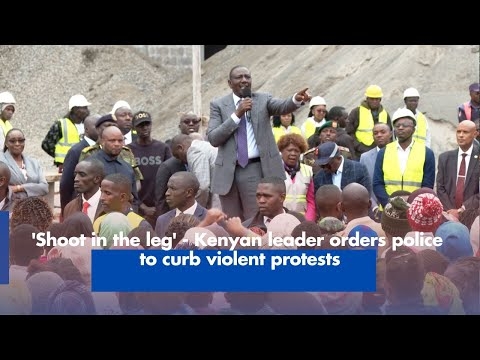Last week I wrote about the burden of debt which descends on just about any elected leader here in Kenya, in the period immediately after a general election.
And how this indebtedness lays the foundation for all manner of crooked deals that many elected leaders tend to get up to, in the effort to retrieve their financial fortunes and to perhaps build a war chest for the next election.
For this I blamed the voters who – as a broad generalisation – can be said to demand that they receive bribes, in one form or another, in return for their votes.
But winning an election and ending up in debt is not the worst thing that can happen to a politician. There is always the very real possibility of losing altogether, despite all that expenditure.
None of us, if we went into a supermarket, and selected various items offered there and then paid for what might amount to a whole week’s shopping, would consider it possible that we might then leave the supermarket empty-handed, despite having spent all that money.
Or present a banker’s cheque to a motor car salesman in one of those omnipresent “motor vehicle yards” after having selected the car we wanted – and then have to leave the yard on foot, to go and board a matatu despite having paid in full for a shiny new car.
And yet that is precisely the logic that applies when it comes to politics: you can spend a fortune, and end up losing all the same.
If you think this is the worst of it, then you have not talked to enough politicians. Apparently, the most tormenting part of losing an election is that just about everyone who knows you will have a theory on why you lost. And will be willing to share this theory with you in exquisite detail.
One person (or group of people) will tell you that your big mistake was in your selection of your campaign manager. And that this man who had somehow convinced you that he was well placed to deliver to you huge baskets full of votes, was actually very much despised “on the ground”. Alternatively, your polling station agents sold you out, and allowed your rival to engage in limitless ballot stuffing.
Or that you simply started your campaign a little too late, and that if you had only begun about a year earlier – before voters had more or less made up their minds in advance – you would have won for sure.
Others will push the cause of your defeat way back into your past, and tell you that whatever good you may have done for the community in recent years had in no way appeased the bitterness that many had felt toward you a decade or so ago, when “everybody knew” that despite the “big job” you held back then, you had at no point found it necessary to dish out jobs to the many deserving but unemployed youths from your ancestral village.
I even heard once of a man who had lost an election, being told that his wife’s reluctance to accompany him frequently enough on the campaign trail is what had sunk his chances for victory. For her failure to appear at his side had created an impression that she was a snob who had no time for the rough and tumble – not to mention the heat and dust – of electioneering.
And so it could be inferred that if her husband won, there would be no welcome at her door for the average sweaty peasant who needed to see his elected representative – and easy access to “mheshimiwa” was the prescriptive right of every voter.
I could go on.
But the overarching point here is that such explanations and analyses are agony to the man or woman who just spent far more than they had initially planned, in order to try and win an elective seat.
And so they very often would rather lock themselves up in their homes, and avoid any meeting with anyone from their rural homes, for fear of a conversation that would begin with the question, “But what happened??” and then go on to “Let me tell you what I have heard about why you lost.”








![[PHOTOS] Ruto hosts UDM leaders at State House](/_next/image?url=https%3A%2F%2Fcdn.radioafrica.digital%2Fimage%2F2025%2F07%2Fc69cdbaf-1cbd-4be3-a7e5-a42efcac7189.jpeg&w=3840&q=100)


